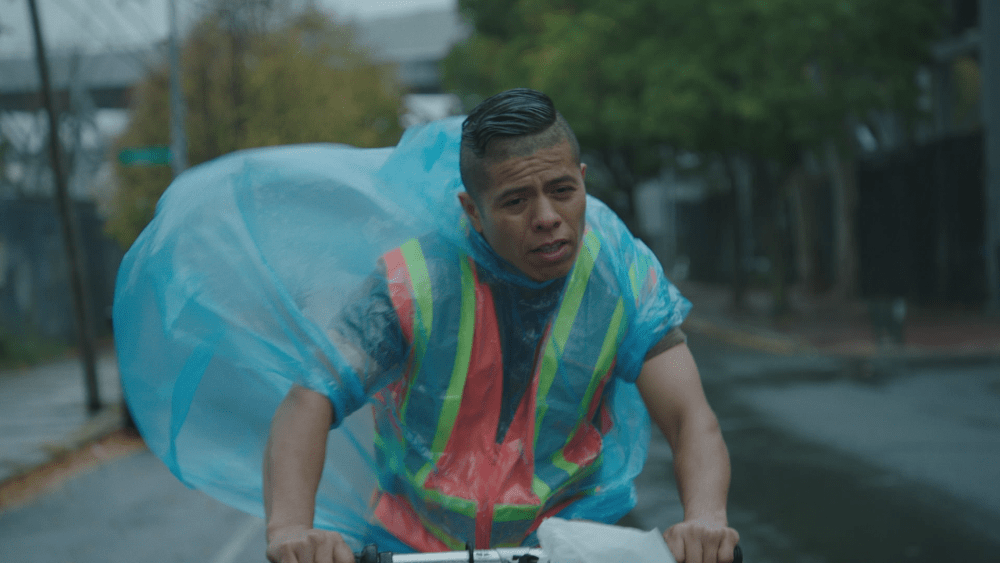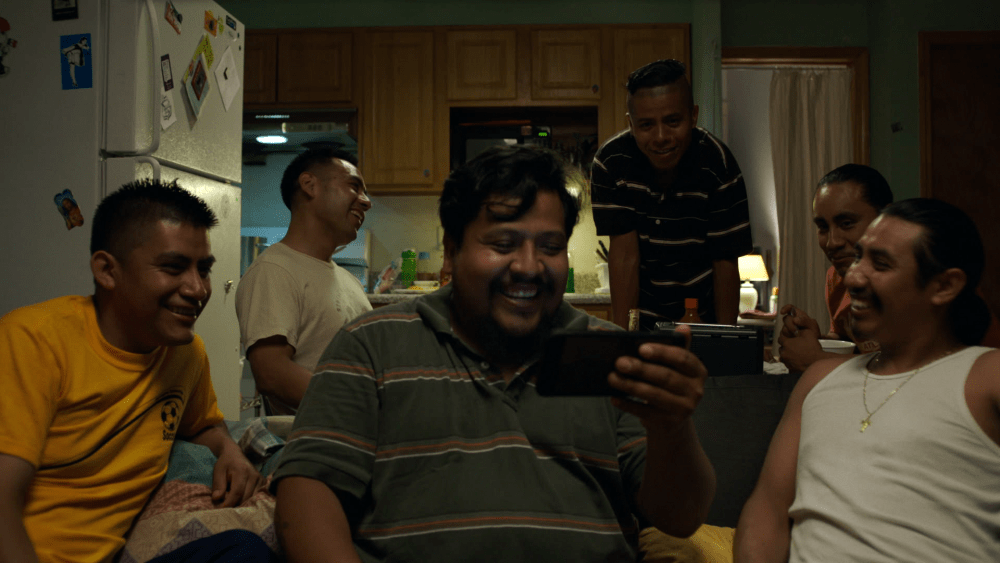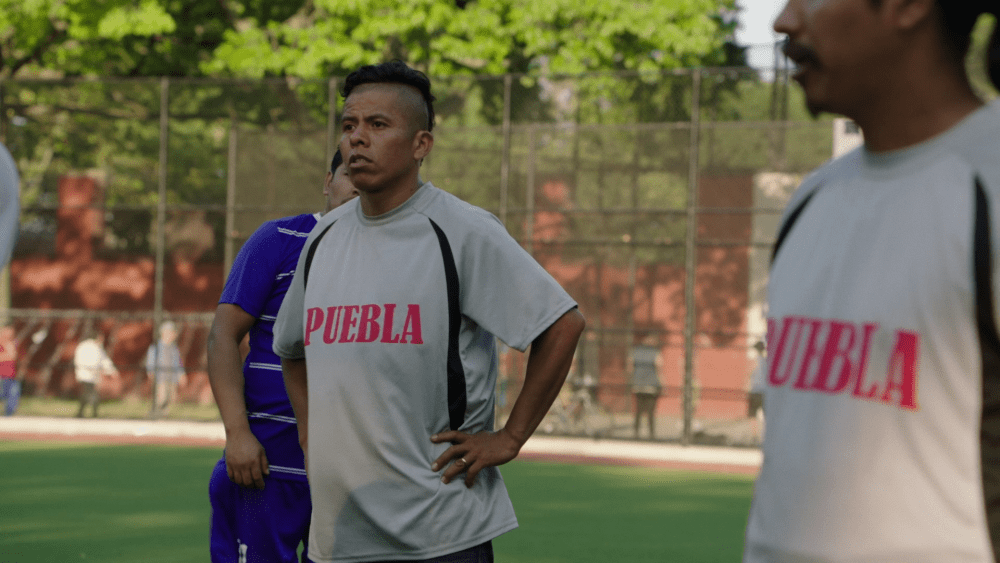Advertisement
Review
'En El Séptimo Día' Invites Us Into The Immigrant Backbone Of NYC's Service Industry

The title of writer-director Jim McKay’s "En El Séptimo Día" translates to “On The Seventh Day,” which was once biblically considered a day of rest, but not so much anymore in the gig economy. Especially not for José — pensively played by the hugely charismatic first-time actor Fernando Cardona — who hustles six days a week as a bicycle deliveryman for a trendy restaurant in Brooklyn’s rapidly gentrifying neighborhood of Carroll Gardens. On Sundays he plays soccer in Sunset Park (after church, of course) with fellow migrant workers from his hometown of Puebla, Mexico. Their team has just made it to the league finals, thanks in no small part to star player and captain José.
Problem is, his boss wants José to work at the restaurant next Sunday during the big game. Of such seemingly minor incidents are major life decisions made in this small-scaled marvel of a movie. For José and his fellow undocumented workers living quietly on the margins, little matters can have massive consequences. Quietly but insistently, with great humor and warmth, McKay invites us into an oft-ignored world of dishwashers, janitors and deliverymen. There exists in our culture a romanticized, outdated myth of the American “working class,” one perpetuated primarily by those who don’t like to look very hard at who’s doing the work these days. In “En El Séptimo Día” we meet the unsung backbone of New York City’s service industry.
But of course this gentle, unassuming film would never come out and say it that way. The sole stretch for grandeur here is the ungainly title, as otherwise McKay works in an off-handed, observational style similar to the Italian neo-realists or Iranian filmmakers like Jafar Panahi. There’s no musical score to pump up your emotions, and he never cuts in for a close-up when a wide shot will do the trick. Nobody comes out and explains the moral of the story or gives us the history of their struggle. Instead we just spend 90 minutes getting acquainted with some enormously likable people, all of them doing their best to get by.

There’s a wry sense of humor in the staging that McKay allows to sneak up on you. When we first meet José’s roommates they’re all filing out of the apartment to a soccer game in a procession that goes on for so long it starts to feel like a parade, or one of those old clown cars from the circus. (It takes a while to register that they all actually live together in these tiny quarters.) Then there’s the receptionist who speaks to him in Spanish but switches to English whenever white people walk by. And naturally the hipster bros at a startup company calling itself “Resistance Media” are gonna treat the delivery guy like crap.
Such microaggressions are merely a matter of life in a movie which, like its protagonist, knows better than to get worked up about what’s never going to change. José needs to stay focused on saving enough money to bring his pregnant partner over from Mexico, and also the finals, of course. Several characters in “En El Séptimo Día” credibly call him out for risking a pretty precarious livelihood over something as trivial as a soccer match, but at the same time we see how much these games mean to the community, keeping a vital connection to their culture after a week of often dehumanizing work. And isn’t a guy who busts his hump like this entitled to a damn day off?

McKay came up during the indie boom of the mid-to-late 1990s, a time when Sundance kids were more concerned about engaging with the world around them than auditioning for Hollywood franchises. (His galvanizing, unavailable-on-DVD debut “Girls Town” screens on Thursday, Aug. 2 as part of the Brattle’s “Heroic!: Women Who Inspire” series.) McKay’s films are political yet not overtly so, placing marginalized people in the spotlight for a change but without making a big deal about it or delivering any soapbox speeches.
“En El Séptimo Día” has a lot in common with his fantastic 2001 “Our Song,” which followed three 15-year-old girls (including an impossibly young Kerry Washington) for a summer in a Brooklyn housing project. The power of McKay’s pictures comes through their accumulation of detail, and astute attention to the rhythms of day-to-day lives. When the movies are over you feel like you’ve made new friends.
That’s certainly the case with José, who in my favorite shot is spied whizzing along on his bike delivering food in the rain, a plastic garbage bag poncho blowing out behind him like a superhero’s cape. (If the movie accomplishes anything it will at least make everyone who watches it a better tipper.) Sometimes you meet a fictional character who makes such a huge impression you wonder how they’re doing after the lights come up. I hope José is alright, and that his team is doing well.
“En El Séptimo Día” runs at The Brattle from Friday, June 27 through Monday, July 30. Writer-director Jim McKay will host a Q&A following the 8:30 p.m. show on Monday.
